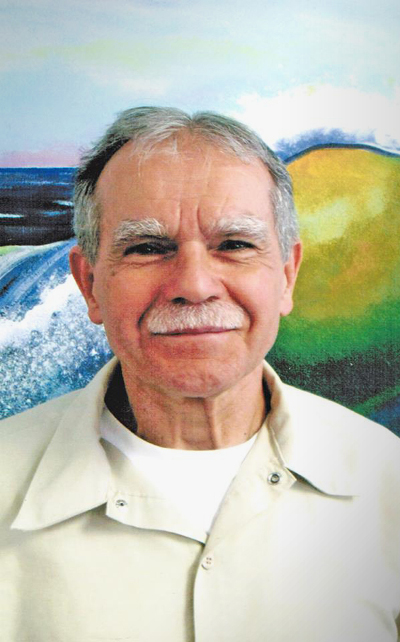Political Prisoner Oscar López Rivera: Sentence Commuted After 35 Years of Torture
January 17, 2017 | Revolution Newspaper | revcom.us

Oscar Lopez Rivera
Photo: Wiki Commons
On January 17, President Obama commuted the sentence of Oscar López Rivera, a Puerto Rican nationalist and one of the leaders of the FALN (Fuerzas Armadas de Liberación Nacional)—an organization dedicated to fighting for the independence of Puerto Rico from U.S. imperialism. López Rivera, who is 74 years old, has been serving a 70-year sentence. He is one of the longest-incarcerated political prisoners in the U.S.—held in torturous conditions for over 35 years, nearly half his life. For decades there has been a fight to free Oscar López Rivera, along with many other political prisoners. He was scheduled to not be released until 2023, but under Obama’s commutation order, his prison sentence will now expire May 17.
Over one hundred years ago, the United States seized the island of Puerto Rico by armed force. Since that time, the U.S. has held Puerto Rico in colonial status—with 13 military bases on the island to threaten the Caribbean and Latin America. This oppressive situation—which has robbed the Puerto Rican people of their land, wrecked the agriculture of the island, and driven many to the cities of the United States—has given rise to constant resistance, including powerful movements for independence and national liberation. In the heat of the 1960s and 1970s, new organizations rose up to fight for Puerto Rican liberation—based both in the island itself and in the large Puerto Rican communities of U.S. cities.
In the 1970s and 1980s, the U.S. government hunted down, persecuted and arrested many members of the FALN, charging many of them with "seditious conspiracy" to overthrow the U.S. government.
In May of 1981, the U.S. government targeted and arrested Oscar López Rivera. He was convicted and sentenced to 55 years in federal prison for seditious conspiracy, use of force to commit robbery, interstate transportation of firearms, and conspiracy to transport explosives with intent to destroy government property. (The sentence was later increased to 70 years.)
At the opening of his trial, López Rivera denounced U.S. imperialism and then refused to participate. He said, "This is not even a trial, it's a kangaroo court. All the people here represent the government and FBI which has already tried me.... Puerto Rico is a colony by U.S. military conquest. Its people live under military rule, under genocide."
The U.S. government claimed that the FALN members they arrested, including López-Rivera, were “criminals” and “dangerous terrorists.” But the government’s charge of "seditious conspiracy" itself revealed the real political issue: The federal indictments of these fighters accused them of working together "to oppose by force the authority of the government of the United States...(for the purpose of) obtaining independence for Puerto Rico."
Federal seditious conspiracy laws make it a crime to challenge the power of the U.S. government, to try to overthrow or oppose it by force, or to conspire to possess any property of the United States without authority. They are laws designed to criminalize revolutionary and other anti-government activities. And in particular, these laws have been used against those fighting for the independence of Puerto Rico.
Oscar López Rivera and other arrested FALN members were singled out for extreme punishment in prison, including being kept in solitary confinement for long periods, which prevented them from having contact with people on the outside. He was subjected to cruel sleep deprivation experiments at ADX Florence prison in Colorado. He has spent 12 years in solitary confinement at a maximum security prison.
In 1999 President Bill Clinton issued a cruel offer to López Rivera and 13 other imprisoned FALN members. Clinton did not agree to free them by commuting their sentences unconditionally. The offer was for these prisoners to be released but serve the remainder of their sentences on the outside—which established a legal basis for a series of “conditions.” These “freed” prisoners would be under the close supervision of the state for the remainder of their sentences (which in many cases meant for the rest of their lives). Clinton’s offer insisted that the prisoners (personally, individually and in writing) "renounce the use, attempted use, or advocacy of the use of violence as a condition for release." And the prisoners also had to accept the conditions imposed on paroled "felons" with the federal parole commission having direct and close control over their lives, activities and travel—and able to constantly hold the threat of returning them to prison at any point.
In effect, the conditions for their release amounted to not being able to continue fighting for the cause of the liberation of Puerto Rico. Oscar López Rivera heroically rejected this vindictive and politically repressive offer.
Jan Susler, Oscar López Rivera’s lawyer, after hearing of Obama’s commutation, said his release is a huge win in the ongoing fight for Puerto Rican independence. “We have to celebrate every victory,” she said. “We have a lot of work left to do, and now Oscar will be able to join us, and we can work side by side.”
Volunteers Needed... for revcom.us and Revolution
If you like this article, subscribe, donate to and sustain Revolution newspaper.
